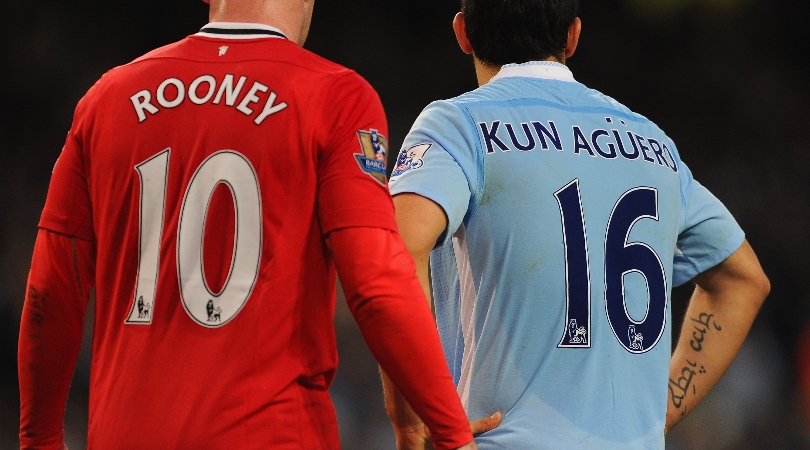On The Ground: Three games in three days in Germany's footballing heartland
FFT travels to North Rhine-Westphalia to watch all of Borussia Dortmund, Bayer Leverkusen, Schalke and Fortuna Dusseldorf across a single weekend
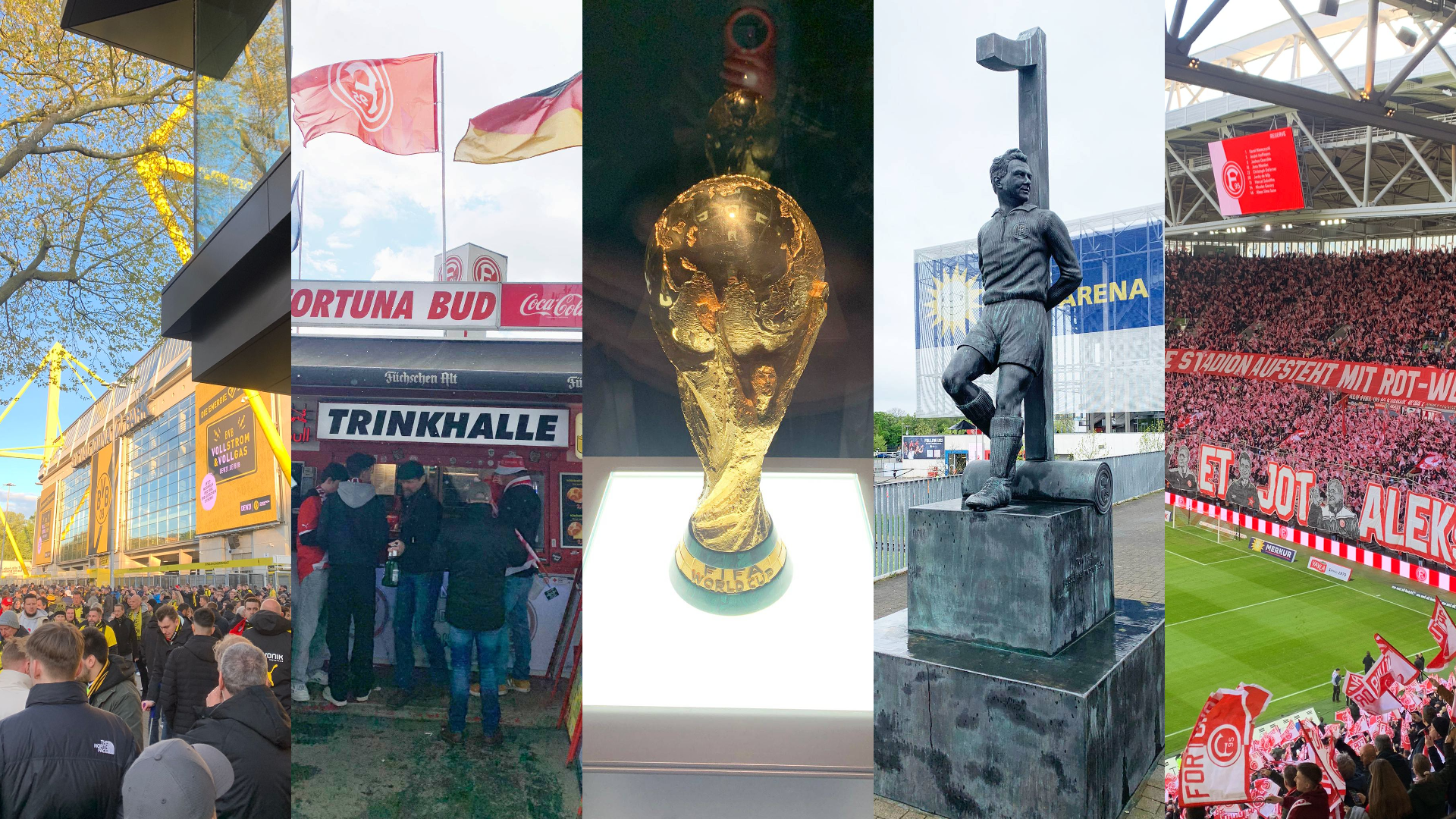
‘April, April, er macht doch was Er will’ – Germans consider April an unpredictable and insubordinate month and, on account of being Germans, they don’t like it one bit.
FFT can sympathise as we stand, umbrella capsized and teeth chattering, on the terraces of Gelsenkirchen’s Parkstadion for a clash between Schalke II and RW Oberhausen. This sodden terrace hosted fans for five matches at the 1974 World Cup. Now, largely dismantled, it plays hosts to matches in the Regionalliga West, Germany’s regionalised fourth-tier.
A stone’s throw from where we shiver looms the bubble-domed Veltins Arena. Schalke’s first team are out of town for a 2. Bundesliga assignment, leaving FFT wondering why they couldn’t have moved this game – and its roughly 600 fans – under the roof of the 60,000-seater just across the boulevard. Alas, we witness the entirety of this unremarkable 1-1 draw in the whipping hail, before clambering into a taxi just as the sun comes out. Typical.
We're in North Rhine-Westphalia, the most populous of Germany’s 16 states, for three matches in as many days, leaving plenty of time for fortunes to improve. How could they not, in such a footballing hotbed? When selecting a team to support, locals here can choose between Schalke, Borussia Monchengladbach, Bayer Leverkusen, Paderborn, Arminia Bielefeld, Bochum, Fortuna Dusseldorf and Borussia Dortmund – and that’s just the top two tiers.
This, too, is where many of this summer’s Euro 2024 games will take place, with Schalke, Fortuna and Dortmund all lending their homes to the competition. FFT has been invited to check out the latter two stadiums this weekend and, from our hub in Dusseldorf, the region’s capital, it’s evident that preparations are well underway.
The Kö-Bogen – a sloping lawn popular with picnickers in warmer months – is surrounded by flags bearing the tournament logo, while a fanzone is erected just next to it. Here, thousands will gather to watch games on big screens, before scuttling into the Alt-Stadt’s enviable array of traditional beer halls and schnitzelhouses. FFT takes the opportunity to try local Alt-biers Schumacher, Zum Schlüssel and Füchschen and, as evening begins to draw in, the machinations of western Germany’s weather suddenly don’t seem quite so important.
War heroes and Grandpa DJs
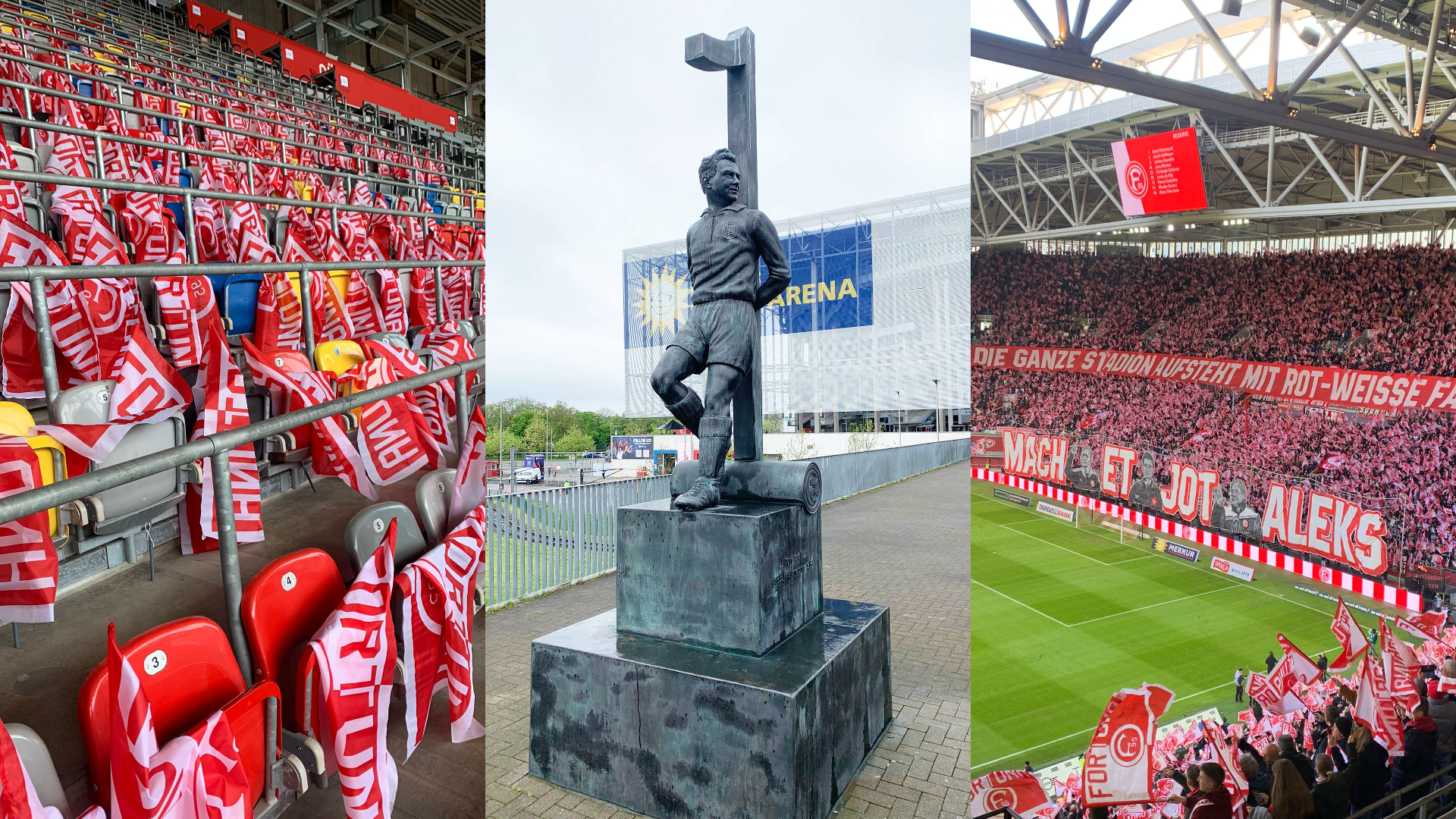
We awake, slightly fuzzy-headed, to news that we’re off to meet a war hero and World Cup winner, as day two of our big weekender begins with a visit to a statue of Toni Turek, legendary goalkeeper for both Fortuna Dusseldorf and West Germany. Turek barely scraped through WWII after a shell splinter struck his helmet. Thankfully, it didn’t prevent him from later inspiring his nation to an unexpected 3-2 win against tournament favourites Hungary in Bern’s 1954 World Cup final – a result still referred to as a ‘miracle’ by Germans to this day.
Get FourFourTwo Newsletter
The best features, fun and footballing quizzes, straight to your inbox every week.
Turek was so immoveable against the likes of Ferenc Puskas and Sandor Kocsis, German commentator Herbert Zimmermann described the custodian as both a ‘devil’ and a ‘football god’. Those labels were deemed so controversial at the time, Zimmermann was forced to apologise to the christian community. Turek’s statue glimmers so gloriously outside Fortuna’s Merkur Spiel Arena, it's hard to disagree with Zimmermann's assessment.
Once inside, we’ve another VIP to meet: Marcus Haefs, aka ‘DJ Opa’. Haefs was a pioneering member of Dusseldorf’s 1980s punk-rock scene – his nickname 'Opa', means ’Grandpa’, an ironic nod to his then-boyish looks. Now slightly grizzled, but with more than a twinkle in his eye, Haefs is Fortuna’s resident DJ; charged with getting the crowd pumped before matches.
This will be Haefs’ final season in a role he’s performed with distinction for more than 20 years. “I only have a few games left now, but it’s been an incredible ride,” he explains. “Dusseldorf, as a city and as a football club, has always had a bond with the punk rock scene. When the club went bankrupt, local punk band Die Toten Hosen paid €1 million to keep them going. That wasn’t a loan but a gift. That’s one of the reasons we take the music that plays inside the ground very seriously here – it’s not the pop music s**t you get elsewhere.”
He’s not wrong. Before Fortuna Dusseldorf file out for their clash with 2. Bundesliga rivals Greuther Furth, fans are treated to AC/DC, Metallica, Cock Sparrer, The Clash and more. It does the job, as promotion-chasing Fortuna triumph 1-0 to make it six league wins on the bounce. Post-game, FFT heads to the iconic Fortuna Bud, a Rhineside kiosk selling Alt-bier, to celebrate with the locals. Within moments of popping the lid on our Schumacher, the heavens open…
Kevin Grosskreutz's schnitzelhaus
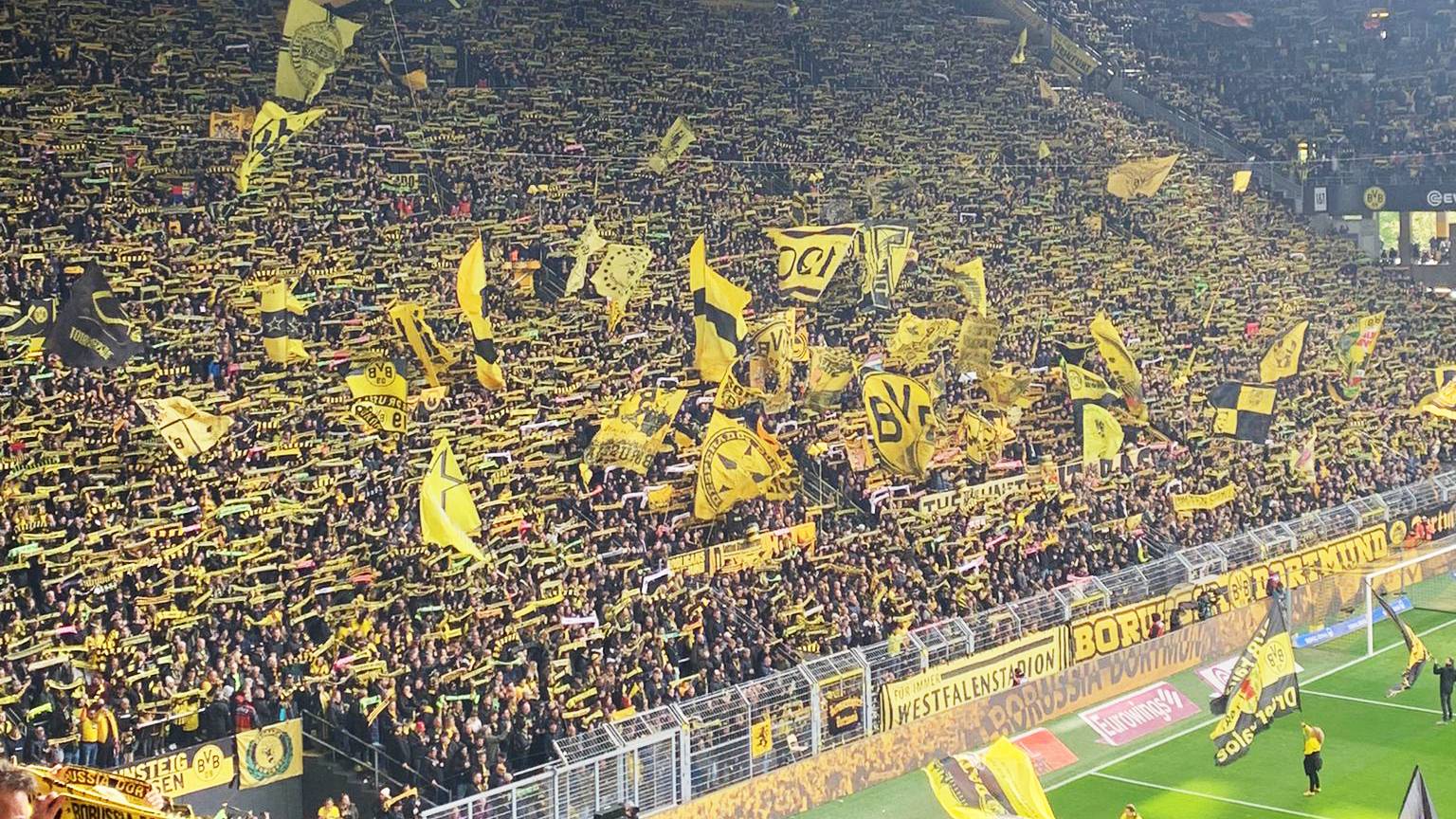
Like any earnest Sunday League midfielder, the German Football Museum in Dortmund doesn’t shirk the first tackle. Visitors are immediately confronted with an exhibition resembling a crime scene investigation, replete with 'suspects'' photographs, connecting thread and police tape. Its title: ‘World Cup Final, 1966’. Looped replays show Geoff Hurst’s winning goal from every conceivable angle in a bid to solve, once and for all, whether it really crossed the line. You’d think, given they’ve actually won four World Cups, they’d let us have this one...
The museum is genuinely one of the best we’ve been to. Highlight exhibits include Mario Gotze’s boots from the 2014 World Cup Final, Diego Maradona’s shirt from Italia 90 showpiece and the actual penalty spot Andreas Brehme scored the winner from in the latter.
Fully nerded-out, FFT heads to the final match of the weekend: Borussia Dortmund vs confirmed Bundesliga champions Bayer Leverkusen. While the weather can’t quite make its mind up, the Westfalenstadion shines dazzles as ever; the Yellow Wall a swirling mass of chaos and drums. We’re pleasantly surprised to witness Xabi Alonso’s Leverkusen get a thorough booing as they emerge from the tunnel – as if to say, ‘Someone might have stopped Bayern Munich, but it wasn’t us, so f**k you!’’.
The pettiness continues throughout the game, as niggly fouls and the occasional brawl prevent any real momentum building. With 10 minutes left, Niklas Fullkrug puts BVB ahead with a stunning volley. It appears as if Leverkusen’s unbeaten run (in all competitions, might we add) has come to an end, before Josip Stanisic rises highest to equalise from a corner in the 97th minute. It’s not been a vintage game, but a draw is a fair result.
Post-game, there’s one final treat in store: dinner and a few beers at none other than Kevin Grosskreutz’s own schnitzelhaus, a stone’s throw from the stadium. Just like the former Dortmund winger, the menu offers a dazzling array of possibilities, from ‘Kevin’s BBQ schnitzel’ and ‘Pepper schnitzel’ to ‘Chilli-cheese schnitzel’ and… well, it really is just schnitzels. Much like the versatile man himself, the restaurant has its limits.
And so comes to an end a weekend featuring three football matches, two Euro 2024 stadiums, five goals, one crime scene, an ageing DJ and about 15 schnitzels. North Rhine-Westphalia might be about the most reliable option for a football pilgrimage there is. If only the same could be said for the month of April…
Many thanks to Visit Dusseldorf for the invitation to North Rhine-Westphalia.
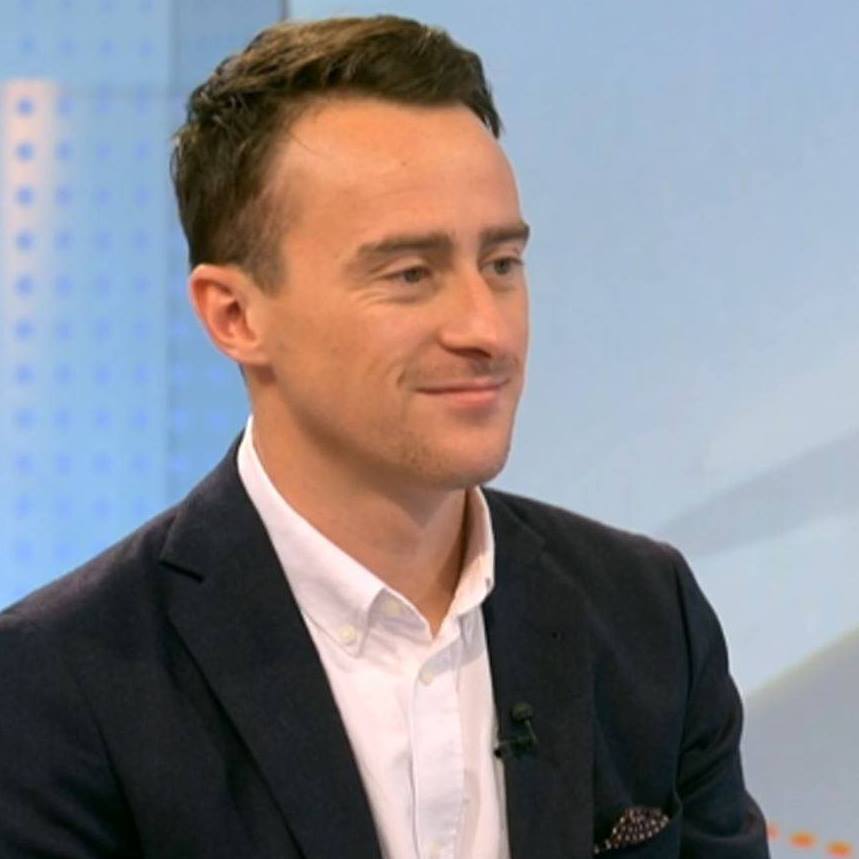
Ed is a staff writer at FourFourTwo, working across the magazine and website. A German speaker, he’s been working as a football reporter in Berlin since 2015, predominantly covering the Bundesliga and Germany's national team. Favourite FFT features include an exclusive interview with Jude Bellingham following the youngster’s move to Borussia Dortmund in 2020, a history of the Berlin Derby since the fall of the Wall and a celebration of Kevin Keegan’s playing career.
